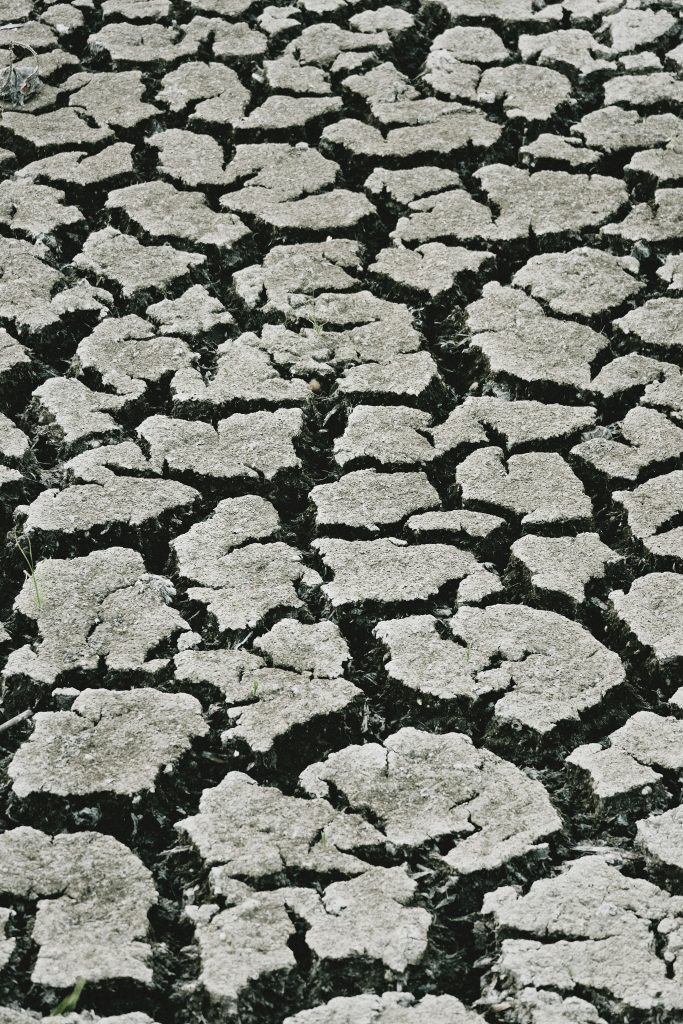Keeping your body properly hydrated is not only important for overall health, but it also plays a crucial role in muscle performance and growth, especially in the abdominal area. You may have questions about how dehydration affects the development of those coveted six-pack abs and strong core muscles. In this article, we will explore the impact that dehydration has on muscle function in the abdominal region, shedding light on why staying hydrated is essential for achieving your fitness goals. So, grab a glass of water and let’s dive into the fascinating world of hydration and its effect on our abdominal muscles!
Introduction
Dehydration refers to a state in which the body lacks sufficient water to carry out its normal functions. It can have detrimental effects on various bodily systems, including muscle performance and growth. Muscle health is crucial for overall physical well-being, as it plays a vital role in everyday movements, sports performance, and aesthetics. This article will explore the effects of dehydration on muscle performance, focusing specifically on the abdominal muscles. By understanding the importance of proper hydration and its impact on muscle health, you can take proactive measures to optimize your abdominal muscle growth and overall fitness.
Definition of dehydration
Dehydration occurs when your body loses more fluid than it takes in. This discrepancy disrupts the balance of essential minerals and fluids within your body, resulting in a range of physiological imbalances. The human body is predominantly composed of water, with muscles containing a significant amount of water. When you become dehydrated, the water balance within your muscles is compromised, impacting their ability to function optimally.
Importance of muscle performance and growth
Muscle performance and growth are crucial for individuals looking to enhance their fitness levels, improve athletic performance, or achieve aesthetic goals such as building a six-pack or strong core muscles. Proper muscle function allows you to perform daily activities with ease and efficiency, while also providing stability and support to your body. The abdominal muscles, in particular, play a pivotal role in maintaining core stability, which is essential for posture, balance, and overall functional movement. Therefore, maintaining optimal muscle performance and growth is vital for overall fitness and well-being.
Effects of Dehydration on Muscle Performance
Decreased muscle strength
Dehydration can significantly impact muscle strength. Water serves as a catalyst for various chemical reactions in muscle cells, allowing them to contract and generate force. When the body lacks adequate water, these reactions become less efficient, leading to decreased muscle strength. Studies have shown that as little as a 3-4% decrease in body weight due to dehydration can cause a noticeable decrease in muscle strength, negatively impacting performance in activities that require strength, such as weightlifting or performing abdominal exercises.
Reduced endurance and stamina
Dehydration can also impair endurance and stamina, making it more challenging to sustain physical activity for extended periods. Endurance activities, such as running, cycling, or engaging in high-intensity interval training (HIIT), require consistent energy production from muscles. When dehydrated, the body struggles to deliver oxygen and nutrients to the muscles efficiently, leading to fatigue and diminished endurance. This can limit your ability to perform multiple sets of abdominal exercises or engage in prolonged core-focused workouts.
Impaired muscular coordination
Proper muscle coordination is essential for executing precise movements and maintaining efficient muscle activation patterns. Dehydration can disrupt the intricate communication pathways between the brain and muscles, leading to impaired muscular coordination. This can negatively affect your ability to perform complex abdominal exercises and engage multiple muscle groups simultaneously. Impaired coordination also increases the risk of injury, as your muscles may not respond as effectively to external stimuli or sudden changes in movement.

Influence of Dehydration on Abdominal Muscles
Importance of hydration for abdominal muscle development
Hydration plays a vital role in abdominal muscle development. Adequate water intake ensures that essential nutrients are delivered to your muscles, facilitating the growth and repair processes necessary for muscle development. Additionally, staying hydrated helps maintain the elasticity of muscles, allowing them to contract and relax effectively during exercise. Without proper hydration, the abdominal muscles may not receive the necessary nutrients and oxygen for optimal growth, hindering their development potential.
How dehydration hinders muscle growth in the abdominal area
Dehydration can hinder muscle growth in the abdominal area through several mechanisms. Firstly, water is essential for protein synthesis, which is the process by which your body builds new muscle tissue. Without sufficient water, the rate of protein synthesis decreases, impairing muscle growth. Secondly, dehydration can lead to muscle breakdown or catabolism, where existing muscle tissue is broken down for energy. This can hinder your ability to build and maintain abdominal muscles, making it more challenging to achieve a well-defined six-pack or a strong core.
Dehydration’s Impact on Abdominal Muscle Performance
Decreased core stability
Maintaining core stability is crucial for proper posture, spinal alignment, and injury prevention. The abdominal muscles, including the rectus abdominis, transverse abdominis, and the obliques, play a significant role in core stability. When dehydrated, these muscles may become weaker, reducing their ability to provide adequate support to the spine and pelvis. This can result in decreased core stability, leading to increased stress on the lower back and potential injuries during abdominal exercises or other movements requiring core engagement.
Limited range of motion
Dehydration can also limit the range of motion in the abdominal muscles. Water acts as a lubricant for joints, allowing smooth and pain-free movement. When dehydrated, the synovial fluid, which provides lubrication to joints, can decrease, leading to stiffer and less flexible abdominal muscles. Restricted range of motion can compromise the effectiveness of abdominal exercises and limit your ability to engage the abdominal muscles fully. This, in turn, may impede progress in building strong and well-defined abdominal muscles.
Impaired muscle contraction and control
Proper muscle contraction and control are essential for maintaining proper form during abdominal exercises and maximizing muscle activation. Dehydration can disrupt the electrical signals and nerve impulses that enable muscle contraction, impairing your ability to activate your abdominal muscles effectively. As a result, you may experience reduced muscle contraction strength and control during exercises, compromising your abdominal muscle performance and potentially leading to suboptimal results.

Effects of Dehydration on Muscle Recovery
Slowed muscle repair and regeneration
Muscle repair and regeneration occur most efficiently when the body is adequately hydrated. Water is essential for transporting nutrients, electrolytes, and oxygen to muscle tissues, aiding in the repair process. When dehydrated, this transport mechanism is compromised, resulting in slower muscle repair and regeneration. This can prolong the recovery period after intense abdominal workouts, making it more challenging to achieve continuous progress in strengthening and toning your abdominal muscles.
Increased muscle soreness and stiffness
Dehydration can intensify post-exercise muscle soreness and stiffness. When dehydrated, the concentration of lactic acid and other metabolites within the muscles increases, leading to heightened sensations of pain and discomfort. Additionally, dehydration can exacerbate the inflammatory response within muscle tissues, prolonging soreness and stiffness. This can hinder your ability to engage in subsequent abdominal workouts and impede your overall progress in developing well-conditioned abdominal muscles.
Prolonged recovery time
Proper hydration is essential for optimal muscle recovery and reducing the time required for muscles to return to their pre-exercise state. When dehydrated, the body’s ability to eliminate waste products, such as metabolic byproducts and cellular debris, is impaired. This can prolong the recovery time needed for your abdominal muscles to heal and rebuild after intense workouts. Ultimately, prolonged recovery times can hinder your ability to maintain a consistent exercise routine and achieve your desired abdominal muscle growth.
Tips to Prevent Dehydration and Enhance Muscle Performance
Maintaining adequate fluid intake
One of the most effective ways to prevent dehydration and optimize muscle performance is to maintain adequate fluid intake. Aim to drink water throughout the day, ensuring that you are well-hydrated before, during, and after exercise. The American Council on Exercise suggests consuming approximately 17 to 20 ounces of water two hours before exercise, 7 to 10 ounces every 10 to 20 minutes during exercise, and another 8 ounces within 30 minutes of completing your workout. Additionally, listen to your body’s thirst cues and drink water whenever you feel thirsty.
Monitoring urine color as an indicator of hydration
Monitoring your urine color can also serve as a helpful indicator of hydration levels. Clear or light yellow urine typically indicates sufficient hydration, while dark yellow or amber-colored urine signals dehydration. By paying attention to the color of your urine, you can adjust your fluid intake accordingly to maintain optimal hydration levels.
Including electrolytes in hydration routines
Electrolytes, such as sodium, potassium, and magnesium, play a crucial role in maintaining hydration and muscle performance. These minerals help balance fluid levels in the body and support proper muscle function. Including electrolytes in your hydration routines can help replenish these essential minerals lost through sweat during exercise. You can consume electrolyte-rich sports drinks or consider adding electrolyte tablets or powders to your water for an added boost.
Avoiding excessive caffeine and alcohol consumption
Excessive caffeine and alcohol consumption can contribute to dehydration as they have diuretic effects, leading to increased urine production. While moderate consumption may not have a significant impact on hydration, excessive intake of coffee, tea, soda, and alcoholic beverages can deplete water stores in the body. To maintain optimal hydration levels, it is advisable to consume these beverages in moderation and prioritize water intake throughout the day.

Hydration Strategies for Optimal Abdominal Muscle Growth
Drinking water before, during, and after workouts
To ensure optimal hydration during abdominal workouts, it is essential to drink water before, during, and after your sessions. Start by hydrating well in advance of your workout, consuming approximately 17 to 20 ounces of water two hours beforehand. During your workout, aim to sip on water every 10 to 20 minutes, especially if the exercise is lengthy or intense. Post-workout, replenish your fluid stores by drinking at least 8 ounces of water within 30 minutes of completing your routine. This strategy will help optimize your abdominal muscle growth potential and aid in post-exercise recovery.
Hydrating with sports drinks or electrolyte solutions
In addition to water, incorporating sports drinks or electrolyte solutions into your hydration routine can be beneficial, especially during prolonged or intense abdominal workouts. These beverages provide a source of electrolytes, which help maintain proper fluid balance, muscle function, and overall hydration. However, it is important to note that sports drinks often contain added sugars, so it is advisable to choose options with minimal or no added sugars to avoid excessive calorie intake.
Including hydrating fruits and vegetables in the diet
Another effective strategy for optimizing abdominal muscle growth and maintaining hydration is to include hydrating fruits and vegetables in your diet. Foods such as watermelon, cucumbers, oranges, strawberries, and lettuce have high water content and can contribute to your overall fluid intake. Including these hydrating foods in your meals or snacks can provide an additional source of hydration and essential nutrients for muscle growth and recovery.
Using hydration apps or reminders
In our fast-paced lives, it is easy to forget to hydrate regularly. Using hydration apps or setting reminders on your smartphone can help you stay on track with your fluid intake. These tools can send notifications at regular intervals, reminding you to drink water or consume hydrating beverages. By leveraging technology to enhance your hydration habits, you can optimize your abdominal muscle growth and overall fitness journey.
Signs and Symptoms of Dehydration
Thirst
Feeling thirsty is one of the initial signs of dehydration. When your body lacks sufficient fluid, it sends signals to your brain, triggering a sensation of thirst. It is important to note that thirst may not always be an accurate indicator of dehydration, as it can be delayed or less pronounced in certain individuals, such as older adults or athletes. Therefore, it’s crucial to maintain regular fluid intake, even if you’re not feeling particularly thirsty.
Dry mouth and lips
Dehydration can manifest as dryness in the mouth and lips. When the body lacks adequate water, saliva production decreases, leading to a dry and sticky sensation in the mouth. Additionally, the lips may become dry, cracked, or chapped. If you notice these symptoms, it may indicate that you need to increase your fluid intake to maintain proper hydration.
Dark and infrequent urine
A noticeable change in the color and frequency of urine can be a sign of dehydration. When dehydrated, urine becomes more concentrated, resulting in a darker color, such as amber or deep yellow. Additionally, reduced urine output or infrequent urination can indicate dehydration. Monitoring your urine color and frequency can serve as a useful indicator of your hydration status.
Dizziness or lightheadedness
Dehydration can lead to feelings of dizziness or lightheadedness. When fluid levels are low, blood pressure can drop, affecting the delivery of oxygen and nutrients to the brain. This can result in temporary feelings of dizziness or lightheadedness, impairing your balance and overall well-being. If you experience these symptoms, it is essential to rehydrate promptly to restore fluid balance and alleviate these sensations.
Muscle cramps
Muscle cramps are another potential sign of dehydration. When the body is dehydrated, there is an imbalance of electrolytes, such as sodium and potassium, which are crucial for proper muscle function. This electrolyte imbalance can lead to involuntary muscle contractions or cramps, especially in the abdominal area. If you frequently experience muscle cramps during or after workouts, it may indicate the need to increase your fluid and electrolyte intake to prevent dehydration.

Recognizing the Link Between Hydration and Abdominal Muscle Health
Understanding the role of water in muscle function
Water plays a fundamental role in muscle function. It provides the necessary medium for chemical reactions involved in muscle contractions to occur efficiently. Additionally, water aids in nutrient transport, waste removal, joint lubrication, temperature regulation, and overall cellular functioning within muscles. By understanding the importance of water in muscle function, it becomes evident that proper hydration is necessary for maintaining optimal abdominal muscle health.
Recognizing the signs of dehydration
Being able to recognize the signs of dehydration is key to addressing the issue promptly and preventing its negative impact on abdominal muscle health. By paying attention to indicators such as thirst, dry mouth and lips, urine color, dizziness, and muscle cramps, you can identify potential dehydration early on and take proactive measures to rehydrate and maintain optimal abdominal muscle performance.
Identifying the impact of dehydration on abdominal muscles
Dehydration can have a significant impact on abdominal muscles, compromising their strength, endurance, coordination, and growth potential. By understanding the specific ways in which dehydration affects the abdominal muscles, you can appreciate the importance of hydration in achieving a well-defined six-pack and strong core muscles. This knowledge can motivate you to prioritize hydration in your fitness journey and implement the necessary strategies to maintain optimal abdominal muscle health.
Taking proactive measures to maintain hydration and muscle health
To maintain optimal hydration and abdominal muscle health, it is essential to take proactive measures. This includes maintaining adequate fluid intake, monitoring urine color, incorporating electrolytes, and being mindful of excessive caffeine and alcohol consumption. By implementing these hydration strategies and recognizing the impact of dehydration on abdominal muscles, you can optimize your muscle performance, enhance growth potential, and progress towards achieving your fitness goals.
Conclusion
In conclusion, proper hydration is crucial for optimal muscle performance and growth, especially in the abdominal area. Dehydration can have detrimental effects on muscle strength, endurance, coordination, and recovery. By understanding the influence of dehydration on abdominal muscle health, you can take proactive measures to prevent dehydration, enhance muscle performance, and maximize your abdominal muscle growth potential. Prioritizing hydration, maintaining adequate fluid intake, and adopting hydration strategies will not only improve your abdominal muscle health but also support your overall fitness and well-being. Remember, staying hydrated is key to unleashing the true power of your abdominal muscles and achieving your desired fitness goals.






